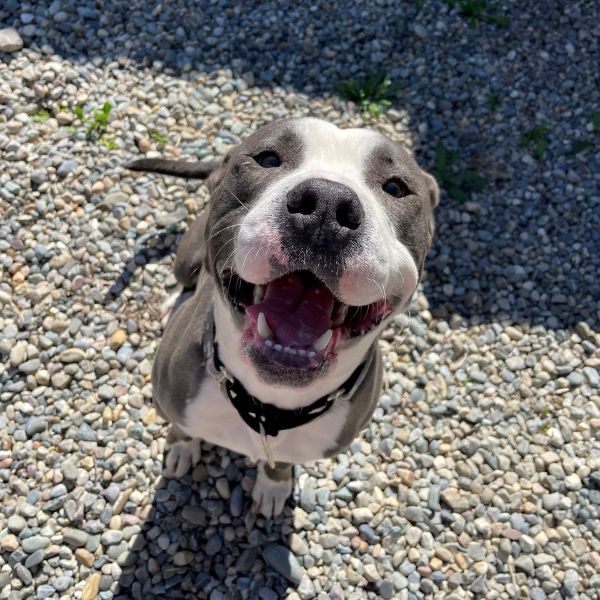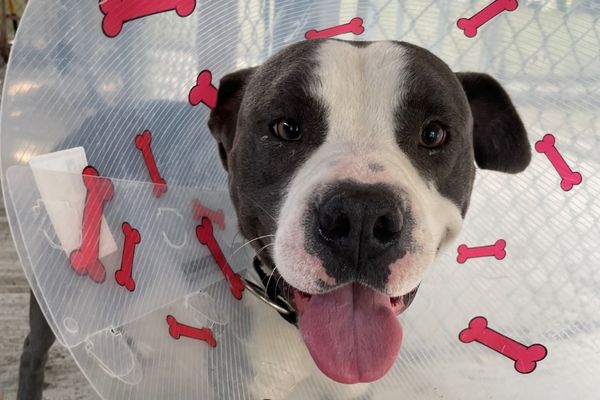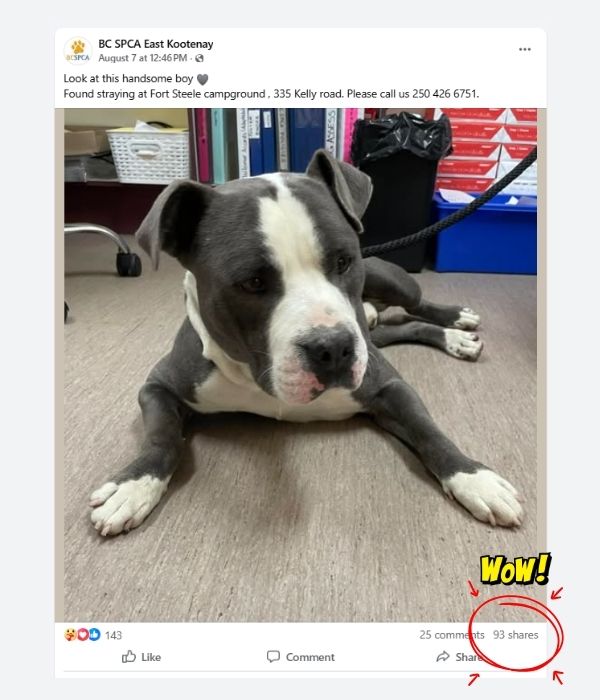Ducky’s journey reminds us that an unregistered microchip can leave pets disconnected from their families and histories. Learn why registering your pet’s microchip protects their health, safety, and well-being.
Ducky’s Story: Why an Unregistered Microchip Matters
When Ducky was found wandering near a private campsite in the East Kootenay, no one knew who he belonged to. The campsite owner checked with every guest, but nobody recognized the lean, dusty pup. On August 7, Ducky was brought to the BC SPCA East Kootenay shelter for help.
Despite his smiley face, Ducky showed signs of outdoor living. His paws had small cuts, his coat carried dandruff, and he looked like he had been fending for himself. Thankfully, his wounds were healing, and his bright energy gave staff hope.

The Problem with an Unregistered Microchip
Like all strays, Ducky was scanned for a microchip. The good news? He had one. The bad news? It was an unregistered microchip. That meant staff had no way to contact his guardians. His stray hold extended an extra day, but no leads came forward.
An unregistered microchip creates more than just a roadblock to reunification. It erases a pet’s history. Without registration, staff cannot access important details such as medical conditions, dietary needs, or behavioral notes. For Ducky, this meant extra trial and error to understand his care needs.
Lost Connections, Lost Histories

Every unregistered microchip represents a lost connection. If a guardian cannot be reached, shelters lose access to the information that makes a transition easier and less stressful for the animal. A simple registration could have told the shelter what food Ducky preferred, whether he had allergies, or how he behaved around people and pets. Instead, that knowledge disappeared.
Protecting Pets in East Kootenay
Pet guardians in Cranbrook and the East Kootenay region can learn from Ducky’s story. A microchip alone is not enough. Registering the chip with a trusted database like the BC Pet Registry ensures that your pet can be traced back to you. It also provides shelters with crucial background information if you cannot be contacted right away, such as medical notes.
Did you know...Not all microchips and registries are the same? Choosing the wrong one can cost you more money, compromise privacy, and put your pet at risk. Read this blog to learn more here.
Transitioning from uncertainty to security starts with registration. By ensuring your contact information is registered and updated, you help staff reunite you with your pet faster and with fewer challenges.
A Happy Ending for Ducky
Thankfully, Ducky’s story ends with joy. Someone who saw his stray post on Facebook reached out, eager to adopt him. On August 14, just one week after arriving at the shelter, Ducky went home with his new family. It’s rare—but wonderful—for a stray dog to find a loving home so quickly. His smile is now brighter than ever.
We want to thank the East Kootenay community for sharing his post and spreading the word. We also thank the dedicated BC SPCA East Kootenay staff, who searched far and wide for any clue to his past. Thanks to their efforts and the support of local residents, Ducky’s second chance came faster than anyone imagined.

Take Action Today
Ducky’s smile may light up the room, but his story carries a serious lesson. An unregistered microchip failed to reconnect him with his family and erased his past. Don’t let this happen to your pet.
Don’t have a microchip? Read Questions to Ask Your Vet Before Microchipping Your Pet before getting one!
Already have a microchip ? Register your chip today to protect your pet’s history, health, and homecoming…don’t forget, Not All Registries Are the Same – Choose the Right One

